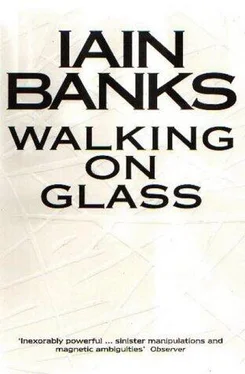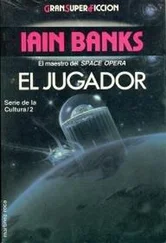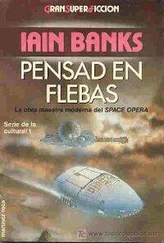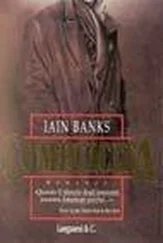She led me on. Your Honour.
Yes, she led me on, and fuck you . Your Honour. I'll not do that, to her or myself. Always did think Pilate had the right idea; wash hands, let the mob have its grubby desire. Slater, my brains are in the right place after all . He turned round, half-expecting her to be holding a breadknife.
But she was still sitting there, in the seat, her back to him, hair gathered and bunched.
"I'd better go, then," he said, and was hopelessly, emptily elated that his voice did not shake very much. He walked slowly past her, down to the carpeted section of the room, and took up his portfolio of drawings. He thought of leaving them for a moment, but he needed the plastic portfolio; it would be a pointless gesture to leave it, or even remove the drawings.
He walked out into the hall; from the corner of his eye, he saw she was not moving. She sat in the chair, unmoving, watching him. He let himself out by the thin, light, inner door, went down the stairs and out the front door. He walked across to the corner of Maygood Street, and straight up it. He almost expected to hear her call him, from the window, and had already decided not to turn if she did, but no sound came, and he just kept on walking.
When she heard the door close beneath, and the lock catch, and then the sound of his footsteps on the pavement outside, Sara slumped suddenly, puppet-slack, her head dropping as though in a faint to lie on the sweat-slicked surfaces of her forearms, near her still clasped hands. Her eyes stared over the smooth dark surface of the table. Her breathing slackened, and her pulse slowed.
He gunned the bike again, sending it out into the traffic, drawing a chorus of horns from behind as the bike's engine hesitated once more. He gritted his teeth, swore, felt sweat dribble inside the black helmet, and twisted the throttle again. The bike's stuttering engine caught and he surged forward, beside a flat-decked beer lorry with a few barrels at the rear of its long load platform. He gunned the engine, swept round the Watneys" truck, the aluminium barrels at its rear glinting in the sunlight. Then when he was level with the cab the engine failed again; he just got round in front of the lorry, then had to slow down. The truck's engine sounded, loud, right behind him. The dying engine would not restart; he would have to steer back in for the side of the road. He waited for a break in the traffic on his left which would let him get to the kerb, ignoring the pulsing horn of the Watneys" truck, which he was now holding up. The engine spluttered, then suddenly caught and ran smoothly again. He hissed through his teeth, revved it. The bike shot forward. Some shouts came from behind, from the cab of the lorry at his back. They came to the lights at the junction of Pentonville Road and Upper Street; he would have to go over the junction and then cut down Liverpool Road, to get to Half Moon Crescent.
He waited at the lights. The beer lorry drew up alongside, the driver shouting at him, loudly asking him what he was up to. He said nothing. The lights changed, the truck moved off, the bike's engine died completely. He restarted it, roared off after the truck, caught it and started to pull in front. The lorry driver was keeping his foot on the floor, the truck's engine screaming. The bike stuttered once again. The engine caught, failed, caught again; together the bike and lorry roared up the wide stretch of Upper Street, the beer lorry stopping the bike from pulling in towards Liverpool Road.
He saw a hole in the tarmac in front of him (and was vaguely aware of people on the pavement, waiting for buses, as their faces flashed by on the far side of the truck's flat deck). The long hole in the road surface ahead of him wasn't too large; he could avoid it and the long dark plume of disintegrating tarmac strewn out on its far side; he swerved the bike neatly.
At first it looked as though the lorry with the beer barrels would miss the hole, too, but it swerved suddenly towards the hole and bike - as though avoiding somebody stepping out into the road from the bus-stop - and its wheels went thumping, crashing into the ragged trench in the roadway with a huge hollow-sounding noise, and from the truck's lightly laden, suddenly bouncing rear, something flew into the air...
Graham walked up the street, through the hard sunlight of the late afternoon, over Penton Street and into an area where most of the buildings had been demolished. Around him were some echoes of buildings; rows and corridors of corrugated iron, new and zinc-bright in the sunlight, standing on end around empty, dusty sites where weeds grew; in the distance were old buildings, tall crumbling places, leaning and twisted, worn old slates with many missing, roofs bowed under the ancient weight, old windows, glaucomaed with age, eaten timbers making up ramshackle additions to the top storeys. New kerbs, un-made-up pavements, dust and sand. He caught glimpses of the empty sites through spaces in the corrugated iron. Most were flat, filled with swirled patterns of rubbish and growing weeds. Some were being worked on; he saw the naked bricks and ragged lengths of concrete-bottomed trenches which would become foundations; lengths of string marked lines and levels for bricks.
He walked through this summit of iron and dust, seeing it but numb to it, through the slightly humid air and the sounds of the traffic and sirens, through the smells of cement dust and rotting rubbish, down to Liverpool Road and over towards Upper Street.
He could only think of what had just happened to him as something he had watched, not actually taken part in. He could not appreciate it directly, he could not cope with it in any personal way, on a level which related to what he regarded as his real self. It was something too important to be assimilated quickly; it was as though some vast besieging army had finally smashed the main gate into a great city, and swept in to overwhelm its ruined defences but could do so only through that one point, so that, while the forces spread throughout the streets and houses and the city's fall was assured, already underway, for a long time in many places within it there was nothing immediately wrong or affected, and life could go on almost as normal.
When he got down to Upper Street there was a traffic jam, and the flashing blue light of an ambulance waiting somewhere at the bus-stops; people were looking in that direction, trying to see over the tops of the other people's heads, edging closer, trying to find out what happened. He could not go near, did not want to see other people.
He crossed the lanes of stationary traffic, waited for a break in the still moving south-bound streams, crossed to the far side, walked past another huge building site where tall cranes stuck into the sky and dust moved in the wind, then went down through smaller streets, ignoring people, clutching the black portfolio to : him, heading towards some trees he could see.
Richard Slater lay in bed with his elder sister, the woman Graham knew as Mrs Sara ffitch, but whose real name was Mrs Sarah Simpson-Wallace (nee Slater).
The shared, mingled sweat dried on their naked bodies. Sarah took another Kleenex from the box under the bed, dabbed at herself, then put the soggy tissues in the small split-cane bin at the foot of the bed. She got up, stretching her arms and shaking her black, tangled hair.
Slater watched her. He had bruised her again. Dark blue marks were forming on the tops of her arms, and under her buttocks, at the top and rear of her thighs. He had bitten her, too, on the white scar (where she didn't feel it so much). She had whimpered at the time; cried out, but - perhaps because she was relieved she had received no physical retaliation from Graham - she did not seem to be in a mood to complain today. Still, Slater felt guilty anyway. He was too rough, and despised himself - and maybe even her - for it. He had never been like that with anybody else, never even felt like being that way. With her, he couldn't help it. He wanted to be like that, he wanted to grip her, squeeze her, to impale and imprison her, to shake and pummel her; mark her. It was that or it was nothing; cold, without feeling, almost masturbatory.
Читать дальше












